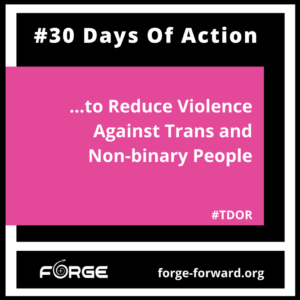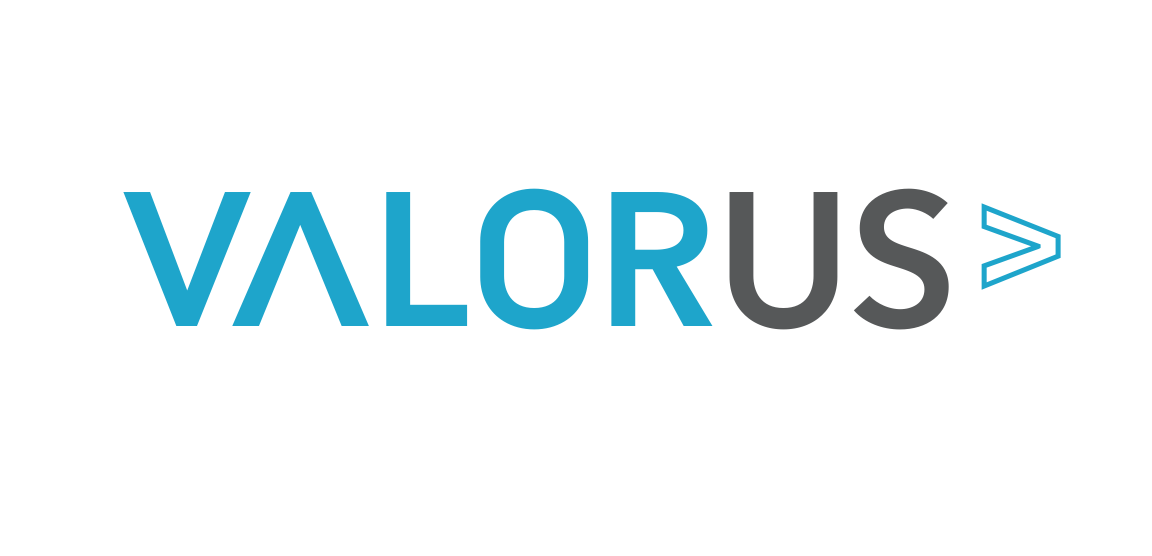 November 20th is National Transgender Day of Remembrance. This is a time for communities to remember and uplift the memory of people who have lost their lives due to anti-transgender violence. Trans women, particularly trans women of color, experience violence and discrimination at alarmingly high rates and there are no signs to suggest that the violence is decreasing. In fact, the number of murders of transgender people that occurred in 2020 surpassed the numbers for 2019 in just seven months. This troubling milestone reminds us that our work to end violence in all its forms, against all people, is far from over.
November 20th is National Transgender Day of Remembrance. This is a time for communities to remember and uplift the memory of people who have lost their lives due to anti-transgender violence. Trans women, particularly trans women of color, experience violence and discrimination at alarmingly high rates and there are no signs to suggest that the violence is decreasing. In fact, the number of murders of transgender people that occurred in 2020 surpassed the numbers for 2019 in just seven months. This troubling milestone reminds us that our work to end violence in all its forms, against all people, is far from over.
Attributing all transgender deaths solely to hate crimes robs victims and survivors of the complexity of their stories. Trans people also experience sexual and intimate partner violence at incredibly high rates and this violence occurs not only due to transphobia, but also to a lack of structural support and systemic marginalization. Failure to address these nuanced root causes of violence allows the harm to continue and paints this gruesome statistic as a single-issue problem. FORGE, a leading national transgender anti-violence organization, describes how sexual and intimate partner violence typically shows up for trans folks.
A major violence prevention strategy is creating protective environments, which is of huge importance when we talk about trans inclusivity in prevention programs. Many transgender and gender-nonconforming (GNC) youth are consistently marginalized through educational institutions, particularly via bathroom segregation and severe bullying – GLSEN’s 2017 National School Climate Survey found 83.7% of trans and 69.9% of GNC students experience bullying on campus. In order for our programs to prevent sexual violence, we need to show up for and center those who are most often pushed to the margins.
In honor of the lives and experiences of trans, non-binary and GNC people, FORGE created a 30-day Action Guide, not only to remember those who have experienced violence but to protect and prevent violence against the living. See some suggestions below of ways that you can show up starting TODAY.
- Know Local Trans Rights
- Policies and laws can vary from region to region. Do some research in your specific area to find out what protections are available for trans people and what legislation needs to change.
- Use Social Media to Educate and Support
- An organization’s social media is a helpful mechanism by which to provide some community education. Consider posting some information about the importance of pronoun usage or gender inclusive bathrooms. Not only does this offer an opportunity to educate your cis-gender followers, it also signals to trans people in your community that their lives and rights matter to your organization.
- Free a Bathroom from the Binary
- Many organizations still do not have gender neutral restrooms. Ensure all spaces, including places outside the organization where you might hold meetings or gatherings, have at least one restroom that is safe for all people to use. FORGE also created this helpful bathroom guide for shelters.
- Introduce Yourself with Your Pronouns
- You know this one, but sometimes it’s easy to forget. Even if you’re not instructed to introduce yourself with your pronouns or in a group a people where pronoun usage isn’t normalized, try to remember to do it anyway if it’s safe to do so. Here’s a short video we like that can be used to explain pronouns to young people who aren’t used to it yet.
- Use Non-Gendered Language
- This is huge for folks working in prevention – we use gendered language all the time without even realizing it. Addressing a mixed gendered group as “you guys” for example, is vernacular that can actually be really triggering and/or alienating for trans and GNC folks. Here’s a helpful guide on how gendered communication shows up and how to avoid it.
- Make Life Better for Incarcerated Trans Folks
- Trans, particularly trans people of color, are criminalized and incarcerated at much higher rates than cis people. Consider organizing youth groups and leadership teams in collecting books to donate to LGBTQ prisoners or sign up to be a pen pal through Black and Pink.
The suggestions above are only six of the 30 action items that FORGE suggested for November. There is always so much more work to do to strive for inclusivity and intersectionality in our collective mission to end sexual violence.
Read the full list here and get started today.


